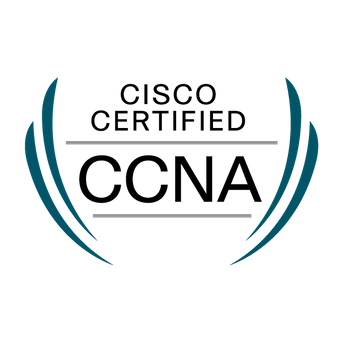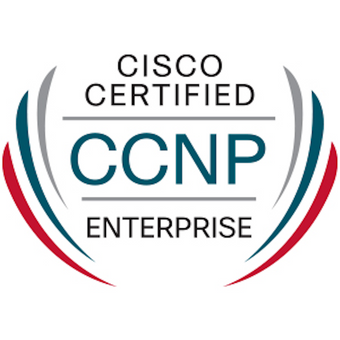The Cisco Certified Network Associate (CCNA) is one of the most sought-after IT certifications in the networking world. Whether you’re starting your career or looking to boost your credentials, the CCNA is a solid foundation for understanding networking concepts and technologies. This post breaks down what the CCNA is, why it’s valuable, and how to prepare for it.
📌 What is the Cisco CCNA?
The CCNA is an entry-level certification offered by Cisco that validates your skills in networking fundamentals, security, automation, and programmability. The current version of the CCNA (200-301) covers a broad range of networking topics, making it ideal for IT professionals who want to build or strengthen their knowledge.
Core Topics Covered:
- Network Fundamentals (IP addressing, routing, switching)
- Network Access (VLANs, EtherChannel, Spanning Tree Protocol)
- IP Connectivity (OSPF, static routing)
- IP Services (DHCP, NAT, QoS)
- Security Fundamentals (access control, VPN, wireless security)
- Automation and Programmability (SDN, REST APIs, Ansible basics)
🎯 Why Should You Get the CCNA?
1️⃣ Industry Recognition: The CCNA is recognized worldwide and opens doors to numerous networking roles.
2️⃣ Career Opportunities: Roles such as Network Engineer, Network Administrator, and Systems Engineer often require or prefer the CCNA.
3️⃣ Solid Networking Foundation: It covers a wide range of concepts, helping you understand both traditional and modern networking environments.
4️⃣ Pathway to Advanced Certifications: The CCNA is a stepping stone toward more advanced certifications like CCNP (Cisco Certified Network Professional) and CCIE (Cisco Certified Internetwork Expert).
📚 How to Prepare for the CCNA Exam
1️⃣ Study Materials:
- Cisco’s official certification guide
- Online courses (Cisco Networking Academy, Udemy, CBT Nuggets)
- Practice labs (Packet Tracer, GNS3, real hardware)
2️⃣ Hands-On Practice: Networking is a hands-on field. Use tools like Cisco Packet Tracer or virtual labs to simulate network setups and practice configurations.
3️⃣ Join Communities: Engage in networking forums, Reddit groups, and Discord channels for study tips, shared resources, and support from peers.
4️⃣ Take Practice Exams: Test your knowledge with CCNA practice exams to identify your weak areas and improve your time management skills.
🏆 What to Expect on the CCNA Exam
The CCNA 200-301 exam consists of:
- Multiple-choice questions
- Drag-and-drop questions
- Simulations and lab-based questions
- A duration of 120 minutes
Passing Score: Cisco doesn’t publish the exact passing score, but it’s typically around 800-850 out of 1000.
💡 Tips for Success
- Master the Fundamentals: IP addressing and subnetting are critical for the CCNA.
- Understand the Exam Objectives: Review Cisco’s official exam blueprint.
- Stay Consistent: Dedicate regular study time and avoid cramming.
- Learn by Doing: Build and troubleshoot networks in labs to reinforce your understanding.
📈 Career Prospects After CCNA
The CCNA opens up numerous opportunities in networking and IT. Some roles you can pursue:
- Network Engineer
- Network Support Specialist
- Network Administrator
- IT Support Technician
With experience and further certifications, you can move into roles like Cloud Engineer, Security Engineer, or Network Architect.
🎉 Final Thoughts
The Cisco CCNA is an excellent certification for anyone looking to build a career in networking. It’s challenging but rewarding and provides a strong foundation for advanced networking concepts and roles.
If you’re ready to level up your skills and open new career opportunities, the CCNA is a great place to start. Good luck on your certification journey! 🚀
Want more resources on passing the CCNA? Stay tuned for our detailed study guides and practice labs!

